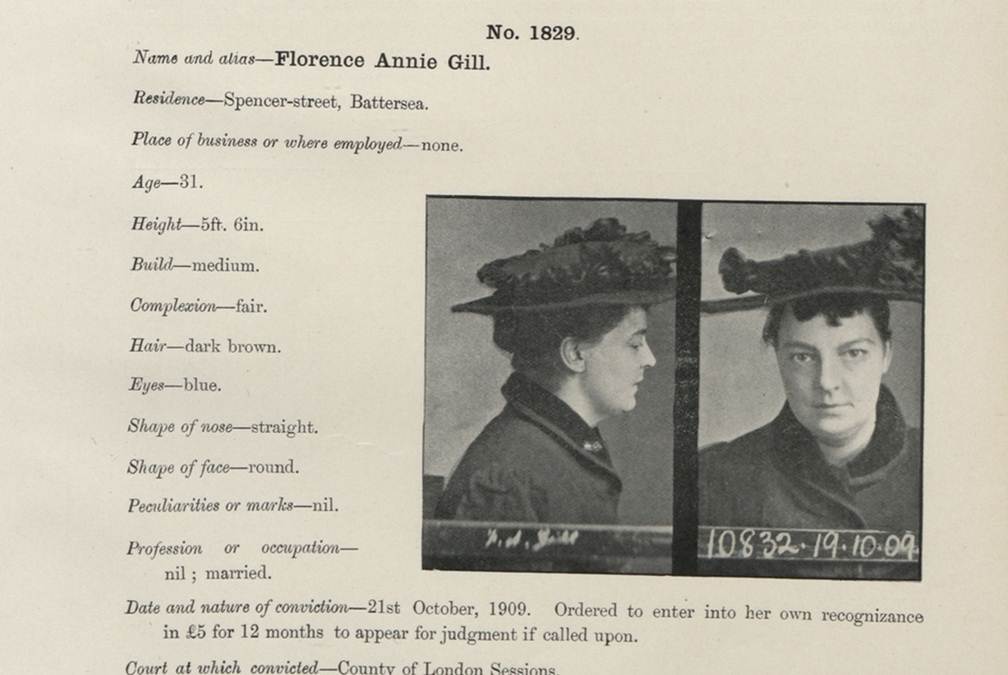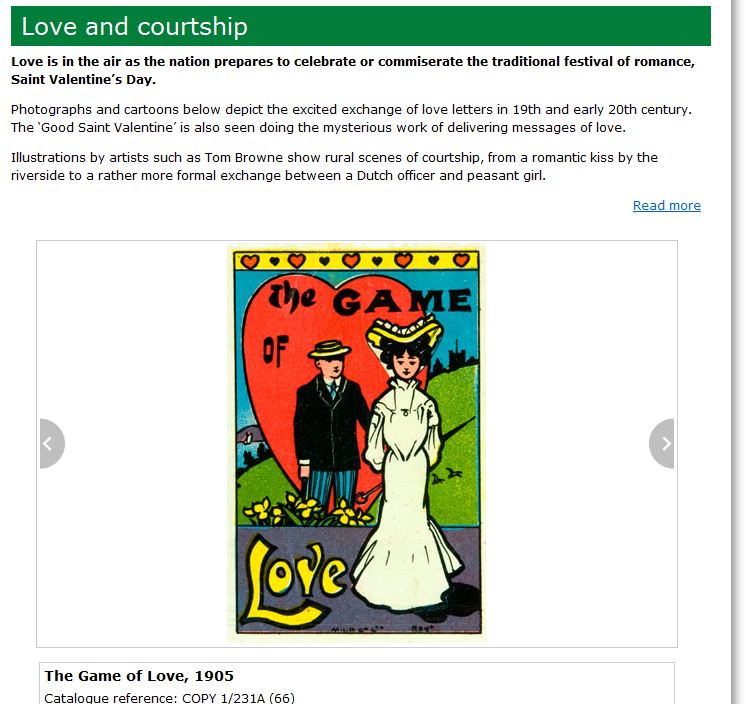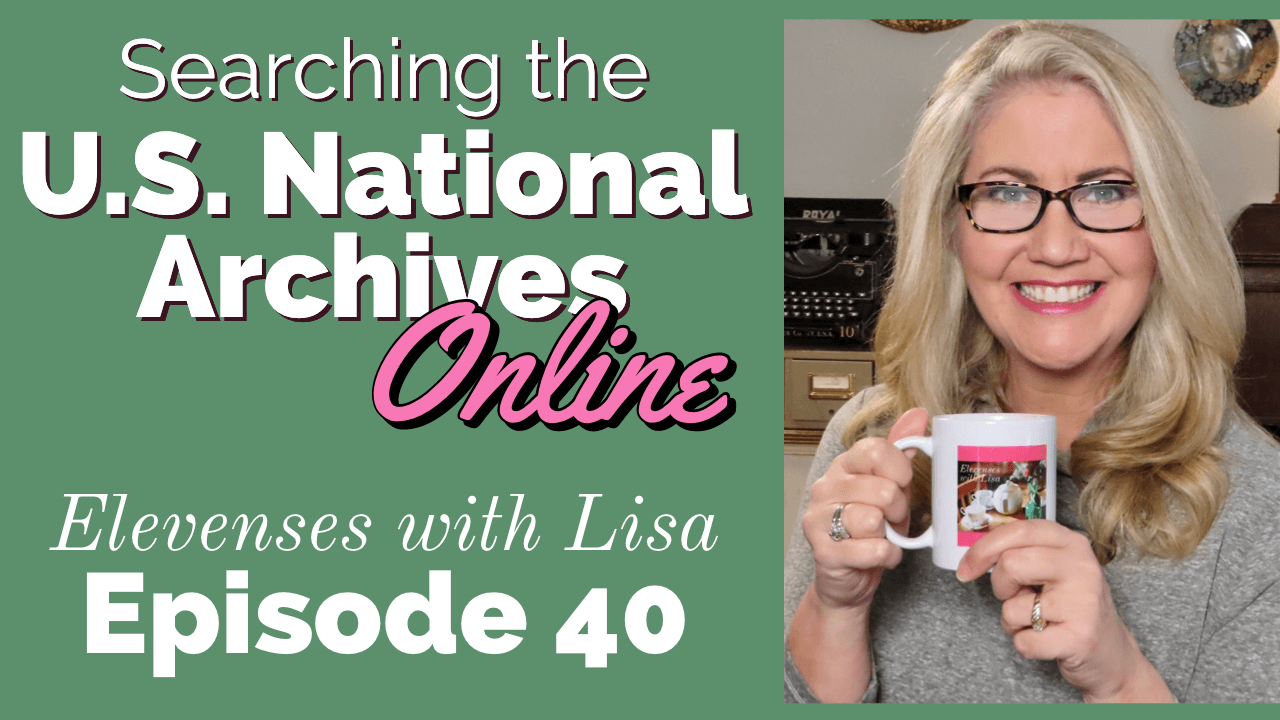by Lisa Cooke | Mar 6, 2013 | 01 What's New, British, History, Immigration, Records & databases
If you have British roots, you’ll want to check out the new collection available on Findmypast.com: a half million criminal records dating from 1770-1934!
This sounds like a pretty gripping collection, whether you’ve got British roots or not. It contains records like mug shots, court documents, appeals letters and registers from prison ships (which were used when mainland prisons were crowded). According to Findmypast.com, the records “provide a wide variety of color, detail and fascinating social history, chronicling the fate of criminals ranging from fraudsters, counterfeiters, thieves and murderers and their victims.” The 500,000 records you can search now are only a fifth of the full collection of 2.5 million that will be online soon.
The company calls this the largest collection of historical criminal records from England and Wales to be published online and is done in association with the National Archives (UK). Findmypast.com members can click here to access the criminal collection directly (make sure the box for “Institutes and Organizations” is checked).
Here’s a little more background on connections between British convicts and the U.S. and Australia….
During colonial times, Britain often punished criminals by forcing them to emigrate. The most famous destination was Australia: the first British settlement on that continent in 1787 was actually a penal colony. Australia celebrates that fact about its heritage today: learn more about the “First Fleet’s” arrival here.
Up to about 50,000 British convicts were also forced to emigrate to the American colonies during the 1700s. These included prisoners of war from Ireland and Scotland. Read more about this in Bound for America: The Transportation of British Convicts to the Colonies, 1718-1775 (Clarendon Paperbacks) by A. Roger Ekirch. Findmypast.com isn’t able to tell us yet how many records in the criminal collection relate to forced emigrations, but anyone with roots in the U.K. should check out this collection for sure.
by A. Roger Ekirch. Findmypast.com isn’t able to tell us yet how many records in the criminal collection relate to forced emigrations, but anyone with roots in the U.K. should check out this collection for sure.
by Lisa Cooke | Feb 15, 2013 | 01 What's New, Conferences, Who Do You Think You Are?
I’m busy packing my bags getting ready to make the trip from California to London for my third appearance at Who Do You Think You Are? Live in London.

Here I am in last year’s experts panel
I’ll be teaching some of my favorite classes (sorry, they are already sold out, but I look forward to seeing those of you who have tickets there):
- Friday 3/22 at 2:30 pm Ultimate Google Search Strategies
- Saturday 3/23 at 11:00 Turn Your iPad (and Tablet Too!) into a Family History Powerhouse
If you don’t get a chance to attend my classes don’t fret, because I have a free ebook for you called 5 Fabulous Google Search Strategies for the Family Historian that will jump-start your research. It’s available for free when you sign up for my free Genealogy Gems e-Newsletter.
One of the best parts about the event for me is meeting all of you! And this year that will be easier than ever. When I’m not teaching you can find me at the Family ChartMasters booth (#12)
There’s so much to look forward to at this years event. Whether you’re new to tracing your family tree or a seasoned researcher, it’s packed with genealogy experts, informative workshops, over 160 specialist exhibitors and celebrities from the UK television series to help you with your own family history search. Is it any wonder that Who To You Think You Are? Live made it on my 50 Family History Favorites list (which includes my top 5 conference picks!) Here the list in the brand new free Genealogy Gems Podcast Episode 151.
It is often said that “bigger is better” here in America, but in the case of family history conferences, the British have won the “super-sized” title. As an American genealogist, when I walk into the immense Olympia convention centre, I feel like a kid in a candy shop. Contained within those walls is more energy, more color (LOVE the hot pink carpeting!), more vendors and more genealogists than just about anywhere else. You certainly don’t have to have British roots to benefit from attending. This is my third year and I look forward to it as much as the first time.
So many of the Genealogy Gems Podcast’s 1 million downloads have been from the UK that it’s like “old home week” for me. Hope to see you there!
by Lisa Cooke | Feb 14, 2013 | 01 What's New, Holidays, NARA
This time of year many of us will show love with chocolates, flowers, jewelry or–as my husband prefers–tools and Chinese takeout. Many of us will also turn to Hallmark or American Greetings for the perfect card.

Valentine’s Day
Our ancestors exchanged love tokens at Valentine’s Day, too. Love letters, notes and even fancy gifts have passed between suitors for over 300 years.
In England, many would-be lovers started sending pre-printed cards through the mail in the 1840s, when postage rates were standardized.
In the United States, the practice became more popular after the Civil War, when thousands of soldiers-turned-beaus were looking for belles.
The National Archives (UK) has gathered a few virtual valentines in honor of the season.

Browse images of old love letters, handmade and commercially-printed cards, like this 1905 valentine with its bold primary colors. Maybe these will inspire your own expressions of love this season! Or maybe they will inspire you look more closely for the love stories in your family history and honor a romance that came before you.
Learn more about using the National Archives Catalog from home to find even more genealogical treasures by watching Elevenses with Lisa Episode 40 at the Genealogy Gems YouTube Channel at https://www.youtube.com/GenealogyGems.


by A. Roger Ekirch. Findmypast.com isn’t able to tell us yet how many records in the criminal collection relate to forced emigrations, but anyone with roots in the U.K. should check out this collection for sure.




